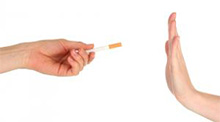Come Off Antidepressants Safely and Comfortably
How hypnosis can support you during withdrawal
Choosing to come off your antidepressants is a momentous decision, and one that you are surely not taking lightly.
Of course, you want to feel good about it, and to feel confident that you can handle the process.
You are no doubt looking forward to life without antidepressants – but may also feel concerned about how you will cope. It’s good to know that you can come off antidepressants safely and successfully.
In coming to your decision, you will have thought about whether and how much antidepressants have helped you. You will be aware of any side effects you have experienced and how these affected you. You may be concerned about possible withdrawal symptoms.
Coming off antidepressants takes time – so give it time
Whatever led to you taking antidepressants in the first place, and whatever kind of antidepressants you have been prescribed, it is very important to consult your physician about how best to manage the process of coming off them.
On no account should you simply stop taking them. Antidepressant drugs build up in the body, and stopping suddenly could result in very unpleasant symptoms. Your body needs time to adjust.
The two sides of safe withdrawal from antidepressants
There are two aspects to coming off antidepressants successfully and safely. One is managing the physical process of reducing the drug dosage and adjusting to the lower levels of the drug chemicals in your body.
Your physician is the person best placed to advise you about this, and to work out a dose reduction plan suited to your individual needs. This may take several weeks or months, so it’s important to be patient.
Helping yourself come off antidepressants successfully
The second aspect of successful antidepressant withdrawal is ensuring that the context in which you stop taking the drugs is as supportive of your recovery as possible.
It may be helpful to think about this before you start the actual process of reducing your dosage. What will help you make the best possible transition to an antidepressant free life? What kind of support can you put in place for yourself?
Exercise and diet can facilitate your withdrawal program
Did you know that research has shown that a regular program of exercise can be just as effective as (and sometimes even more effective than) an antidepressant in addressing and averting the symptoms of depression? (1). How can you ensure that you get a good regular dose of enjoyable exercise that will help you keep mind and body in healthy balance?
Of course, a healthy mind and body needs more than exercise. Have you thought about what diet changes could benefit you? This is another area where your doctor or dietician could help you plan lifestyle changes that will support your determination to come off antidepressants successfully.
How hypnosis can help you come off antidepressants
These are just two elements of the context in which you will carry out your plan, and attending carefully to them can significantly improve the likelihood of successful and safe withdrawal. Keeping up your determination to become free of antidepressants will also be an important factor, and staying focused on your goal will be that much easier if you activate all the inner resources available to you.
Coming Off Antidepressants will teach you how to easily access and activate your unconscious ability to adapt very successfully to change.
Using deep relaxation and guided imagination, you will find that it gets easier and easier to find creative solutions to challenges, and to hold fast to your determination to reach your goal.
This permissive hypnosis session will also give you a range of new strategies you can use to come right out of depression and keep it at bay in future.
Download Coming Off Antidepressants and begin to enjoy life a lot more. You can listen on your computer or device or via our free app which you can access when you have completed your purchase.
Note: (1) ‘Exercise Treatment for Major Depression: Maintenance of Therapeutic Benefit at 10 Months’. Psychosomatic Medicine, September/October 2000
![]()
 Instagram
Instagram








